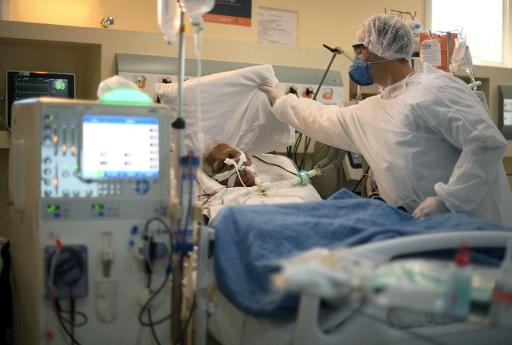According to a new French study, intubated and mechanically ventilated Covid-19 patients are at significant risk of suffering from phlebitis - the appearance of blood clots and inflammation in their veins - with potentially serious consequences.
The study, which dealt with seriously ill patients warns that, standard anticoagulant treatment "is probably insufficient to effectively prevent deep vein thrombosis," the most severe form of phlebitis, a potential source of pulmonary embolism in which the clot moves and clogs the pulmonary artery.
Data from 56 intubated and mechanically ventilated patients for pneumonia caused by Covid-19 were analysed as part of the study carried out by a team from the Parisian Lariboisière hospital.
All patients received anticoagulant therapy and underwent two successive ‘doppler’ examinations several days apart to detect phlebitis. In total, almost half (26, or 46%) had deep vein thrombosis, and in a number of cases "very high" according to the doctors.
These data show "a very high prevalence of deep vein thrombosis, a large proportion of which is potentially fatal, in intubated Covid-19 patients, despite standard anticoagulant treatment applied as prevention," the study concludes.
According to its authors, this underlines "the need for careful monitoring of deep vein thrombosis" and for an "evaluation of the benefit and risk ratio of stronger anticoagulant therapy."
According to Paris public hospital network, Assistance-Hospitals of Paris (AP-HP), "the team is currently evaluating other anticoagulation regimes, making it possible to prevent thromboses more effectively."
In April, Canadian actor Nick Cordero, who fell gravely ill with Covid-19, had to have his right leg amputated because a permanent clot blocked the circulation of blood after 18 days in intensive care in Los Angeles,
In another study published on May 28 in the European Journal of Heart Failure, French researchers had made a link between unexplainable phlebitis, pulmonary embolism and unexplained cardiac arrests observed outside hospitals during the epidemic.
"A significant proportion of the victims of sudden death during the epidemic peak were probably linked to pulmonary embolism," the French hospital network AP-HP said in a press release.
The Brussels Times

